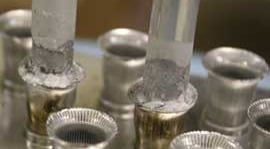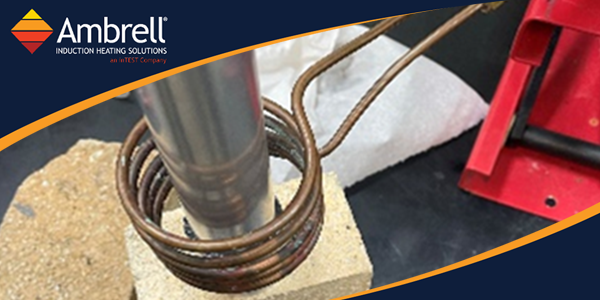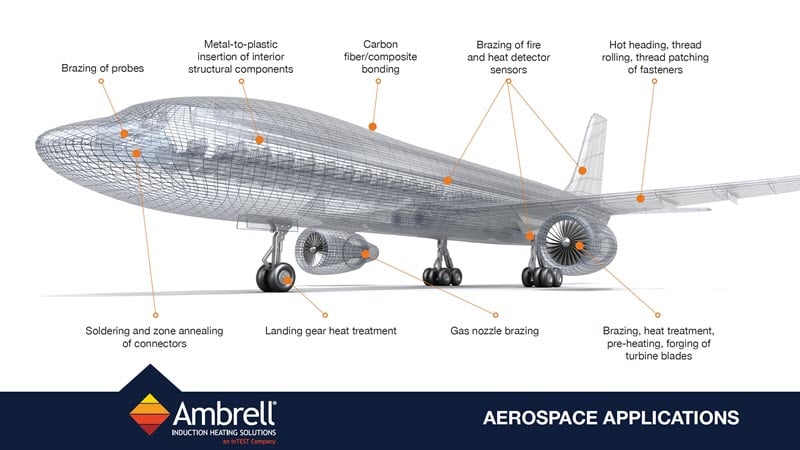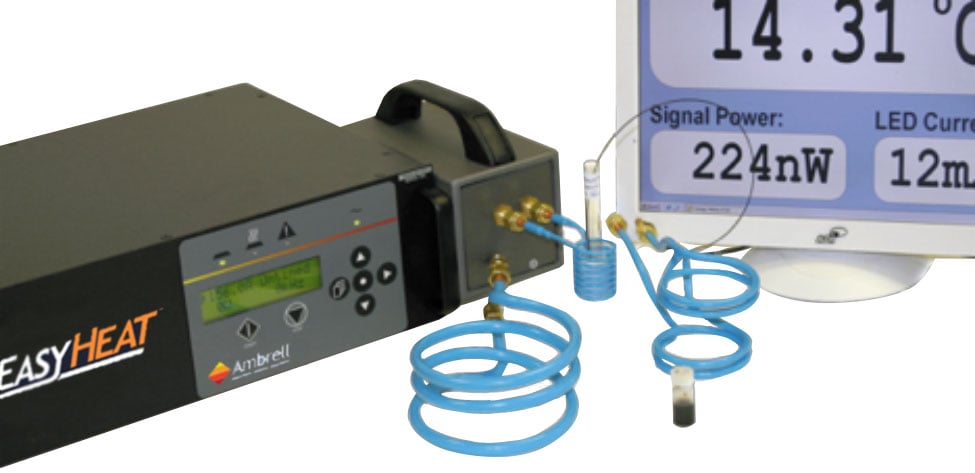Induction Brazing an Aluminum Assembly
Objective A company wanted to assess using induction heating for their aluminum assembly brazing process, and contacted THE LAB at Ambrell to utilize...
Applications
Applications: More
Applications: More

Industries:
Industries: More
Industries: More
Industries: More

Products:
Products: More
Services:
Services: More

Learn:
Learn: More
About:


Aluminum is a real challenge to join without specialized brazing equipment. You will need advice on a specialized solder or brazing alloy intended for use on aluminum, or for joining aluminum to a different metal or alloy depending on your application. Once you're set with the solder, the challenge lies in working quickly enough to join the aluminum immediately after the aluminum oxide layer has been scraped off the surface. Brazing aluminum requires precision and process control. Induction heating offers both.
More aluminum brazing application notes
Let's review five important considerations:
Aluminum melts at a relatively low 660ºC (1220ºF), which combined with its high heat capacity makes it almost impossible to solder using general-purpose solders. At Ambrell, we adjust the solder to your brazing application needs. In all cases, avoid using a solder containing lead.
At Ambrell, we recommend using flux cored aluminum braze rings. However, the rule of thumb is to make sure that the recommended temperature for the flux you select is similar to the melting point of your solder.
Induction heating is the optimal candidate if you want to bring aluminum to the right temperature and control your brazing process. We not only help with your application needs, but also with application testing at Ambrell's renowned applications laboratory, commonly known as THE LAB.
Coil design and time for the heat to flow are critical in a successful induction brazing process of aluminum parts. Our lab engineers have the expertise in coil design you need. We have a few tips on coil design for you in our aluminum brazing guide.
Get advice from our expert applications engineers on how induction heating can help you braze aluminum in a controllable, efficient way. Over the years, we collected numerous brazing application notes, so we have documented knowledge and experience available. Plus, with our broad range of our induction heating systems, we can offer the ideal solution for brazing aluminum parts of different shapes and sizes. And the best part is we test your application free of charge at our applications lab! So let us know what your application requirements are, and we'll design an optimal solution for your specific needs.

Objective A company wanted to assess using induction heating for their aluminum assembly brazing process, and contacted THE LAB at Ambrell to utilize...

Induction heating is a process that uses electromagnetic fields to heat electrically conductive materials. It has been used in numerous industries...

Induction heating, a process that uses electromagnetic induction to heat electrically conductive materials, is often thought of for large industrial...